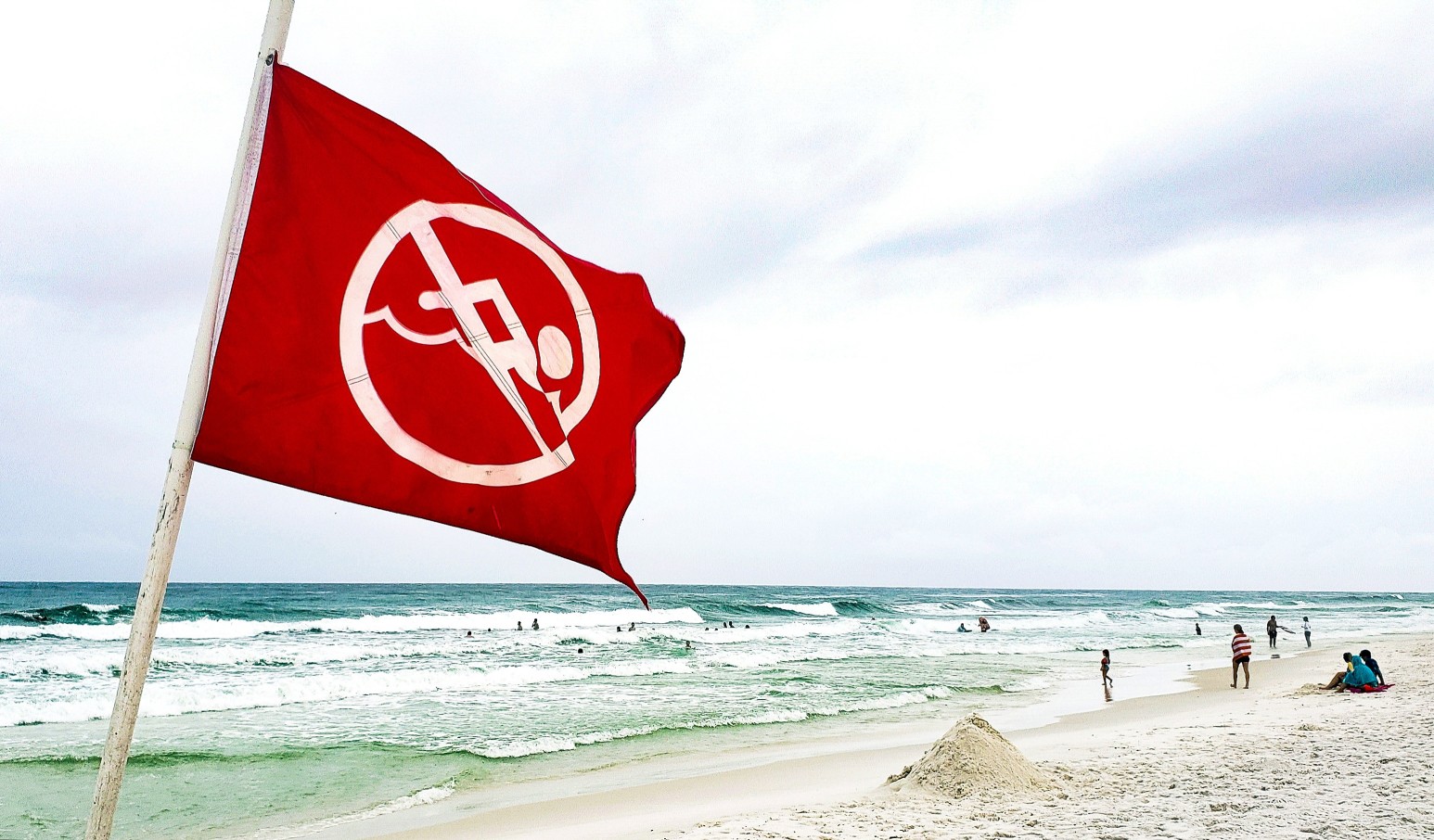Potentially deadly and unpredictable, riptides are channel currents that flow away from the shore. Riptides are strongest at the surface of the water, generally moving at speeds of eight feet per second. They are more likely to develop at low tide and can even occur in nice weather. Riptides can also be rougher on the East Coast than they are on the West, largely due to our tide changes and fast moving summer storms. Most riptides weaken at about 50 to 100 yards out to sea, but they still account for about 100 deaths per year in the United States, according to our Lifeguard Association. Rip currents are also responsible for approximately 80 percent of the rescues performed by lifeguards at the beach.
If you get caught in a riptide, the first thing you need to do is remain calm. Panic always makes things worse. Remember that rip currents will not suck you down. That is only a myth. Also try to signal a lifeguard by waving your arms and yelling. A rip current is stronger and faster than an Olympic swimmer, so you shouldn’t try to beat it. Swimming against a riptide can lead to exhaustion and drowning. Instead you should “join it.” Yep, it sounds crazy, but it’s true. Swimming parallel to the beach, whether left or right, works every time.
However, the best way to beat a rip current is to not get caught up in it in the first place. Always check the forecast before going to the beach and look for flags that indicate dangerous conditions. Although they may not show any signs, their signs may be subtle or they might form while you are in the water, you should also try to avoid riptides by looking for them before you hit the waves.
When you are able to spot riptides from the beach, you may see a discoloration of the water. It’s caused by the sand and seaweed being pulled out to sea. Also look for areas that don’t have white foam or breaking waves and search for gaps in wave patterns, within the horizontal line of the wave.
It’s easier to spot riptides when you are checking the shoreline from an elevated position. Polarized sunglasses can also make them easier to spot. If you do spot a riptide, alert the lifeguard on duty. You may be saving lives.


